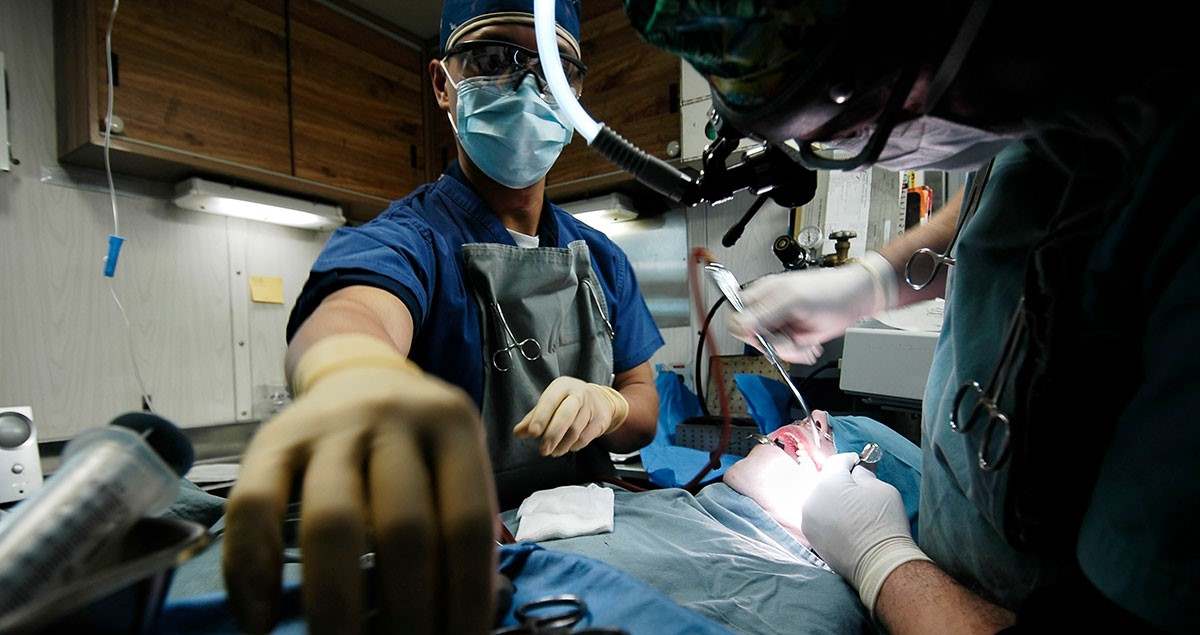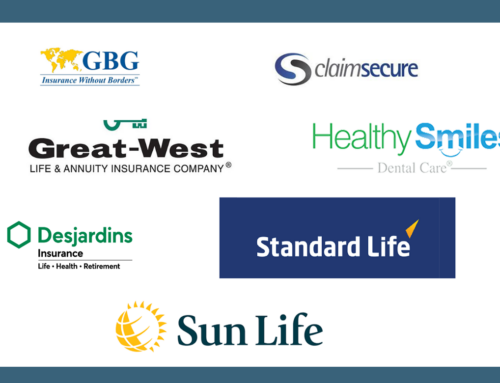Simplified Guide to Understanding Maxillofacial Surgery
When someone finds themselves in need of extensive dental work to correct a serious health problem related to the teeth, gums, or jaw, the treatment plan will most likely include some form of maxillofacial surgery. For patients in this situation, there are many questions and concerns they will have about what to expect from the procedure. Here, we will explain what maxillofacial surgery means and how these treatments are performed.
Having a healthy mouth is a very important part of our overall state of health and well-being. When dental work is needed to repair damage, correct a problem, or restore lost mouth function, it’s essential to take action as soon as possible to avoid the development of more serious issues in the future. Sometimes the solution may be a straightforward and non-invasive procedure that can be performed during one of your regularly scheduled dentist appointments. Other times, a more extensive surgical dental procedure may be necessary to achieve the optimum outcome. In these cases, the treatment is often referred to as maxillofacial surgery.
What Is Maxillofacial Surgery?
You may be wondering what the difference is between oral surgery and maxillofacial surgery. Quite simply, oral surgery specifically refers to procedures that are performed within the oral cavity itself, such as tooth extractions or the insertion of a dental implant. Maxillofacial surgery covers a much broader range of procedures that include surgical treatments in the mouth as well as in the surrounding areas of the jaw and face.
Much in the same way that family doctors and medical surgical specialists differ, so do dentists and maxillofacial surgeons. Dentists perform a wide range of general dental procedures, whereas maxillofacial surgeons specialize in more extensive surgical oral reconstructions and repairs. Maxillofacial surgeons must complete additional specialized training and education after earning their DDS in order to become certified Oral and Maxillofacial Surgeons (OMS).
What Types of Procedures are Considered Maxillofacial Surgeries?
The category of maxillofacial surgeries is quite extensive, and covers a diverse range of dental and oral health treatments. Let’s take a look at the main procedure types that are often conducted by maxillofacial surgeons.
Oral Trauma Repair & Reconstruction – In the event of an accident that results in serious damage to the mouth, jaw, and surrounding facial area, a maxillofacial surgeon will perform the necessary repair and reconstruction. This includes dealing with bone fractures, soft tissue damage, lost teeth, and muscle repair. To do this, the surgeon may utilize techniques such as bone grafting, dental implants, tissue grafting, or the use of specialized dental prostheses depending on the extent of the damage and the needs of the patient.
Treating Jaw Abnormalities – If problems develop in the jaw during childhood that result in misalignment of the teeth, a maxillofacial surgeon may be called to correct the issues and improve the alignment of the jaw and teeth. Maxillofacial surgeons also work to treat patients affected by such conditions as temporomandibular joint disorder (TMJ). TMJ disorder is a condition known to cause severe chronic headaches, grinding and clenching of the teeth, and sleep apnea.
Correcting Congenital Oral Conditions – If a person is born with a congenital condition such as a cleft palate or a cleft lip, maxillofacial surgery can be used to correct the issues. These maxillofacial surgical procedures may be done in stages depending on the amount of correction required and the age of the patient.
Oral Cancer Treatments and Surgeries – When dealing with oral cancer, surgical removal of affected tissue and tumors is done by a maxillofacial surgeon. These surgeons also handle the removal of other growths in the neck, face, and head such as cysts or benign masses.
In addition to these, maxillofacial surgeons also provide comprehensive examinations and diagnoses for oral health issues that are deemed too extensive or complex for a general dentist. Examples of these situations include chronic pain in the face, neck or head where a cause is not immediately apparent, or in cases of cosmetic corrective surgery involving these areas of the body.
What To Expect from Maxillofacial Surgery Procedures
For patients who are referred to a maxillofacial surgeon, there can be a great deal of uncertainty about what’s involved if they’ve never undergone treatments like these before. To help prepare patients for what to expect when maxillofacial surgery is required, we’ve broken down the process into the following stages.
The Examination and Consultation
To begin with, a comprehensive examination will be performed to obtain all the information needed to develop the most effective treatment plan for the needs of the individual patient. Depending on the medical and dental history of the patient, maxillofacial surgical plans can vary significantly. The surgeon will take into consideration any previous repair work or injuries that had been sustained in the affected area, as well as any underlying health conditions that may necessitate a change in treatment plans. This includes obtaining x-rays or other types of imaging scans that may be required.
After the examination has been completed and the information has been gathered, the patient will be provided with a detailed consultation on the surgical procedure before things proceed any further. The reason for this is so the patient can be completely informed and educated on what the treatment will involve, what the outcome will be, and what alternatives may be available. Once the patient has been fully informed and the maxillofacial surgeon has completed their consultation, appointments will be booked to perform the procedure.
The Maxillofacial Surgical Procedure
In most cases, maxillofacial surgical treatments are performed in a hospital rather than a dental clinic. This is due to the more extensive nature of the surgeries that are conducted by maxillofacial surgeons. Some smaller surgeries can be performed fairly quickly, with patients able to return home on the same day. In other cases however, where the surgery is more complicated, the patient may be admitted for a longer stay and recovery. These details will all be explained as part of the final consultation so that the patient and their family can be prepared for the duration of their stay at the hospital.
At the time of the procedure, the patient will be sedated to an appropriate level based on the nature of the procedure. For some patients, this may simply be a local anesthetic or mild sedative, but it can also include oral sedation or nitrous oxide for other types of procedures. The most complex surgeries will often utilize IV sedation to put the patient entirely to sleep during the procedure.
Once the patient is adequately sedated, the surgery will commence. After the procedure is finished, incisions will be closed and the patient will be transported to a recovery room while the sedation wears off. Depending on the extent of the surgery, the patient may be kept for a longer period of time at the hospital for monitoring and to obtain IV pain relief, or they may be allowed to return home with oral pain medication if the recovery process will not be as long.
The Recovery Process
Recovery from maxillofacial surgeries is generally pretty straightforward. Once the patient is deemed well enough to return home, they will be provided with any medication or prescriptions they may require, as well as instructions on how to care for the treated area at home. This may include such details as the administration of antibiotics, changing bandages or dressings, and dosage of any medications needed. During recovery, patients will likely experience several common things including swelling or bruising in the area, temporarily reduced function in the jaw, and mild pain or discomfort that can usually be managed by over-the-counter or prescription pain relievers. These are normal effects, and they typically subside after a few days.
After a certain time period of recovery, a follow-up consultation with the maxillofacial surgeon or referring dentist will be scheduled to monitor the healing process and verify that there are no complications. In the event that any additional treatments are required, they will be determined at this time and the appropriate discussions with the patient will take place to plan the next steps.
What Should I Do If I Think I Might Need Maxillofacial Surgery?
If you’re suffering from a dental health issue that is persistent or worsening, the best thing to do is schedule an appointment with your dentist at the earliest opportunity. It’s possible the issue is a simple one that can be corrected promptly by your dentist. However, in the event that the problem is a more serious dental health issue, you may be referred to a maxillofacial surgery specialist for a more comprehensive examination and consultation.
To get the process started and obtain the answers you need, book an appointment today with the team here at Georgian Dental. Our dentists and maxillofacial surgeons will work with you to develop the best possible treatment plan to help get your smile back in style and restore the health of your mouth. We look forward to seeing you soon!
Appointment Request
If you’re interested in any of our procedures, and would like to meet with one of our dentists to discuss options, costs and get additional information, complete this short form and we’ll give you a call to arrange for a no-obligation appointment at our Barrie clinic.










